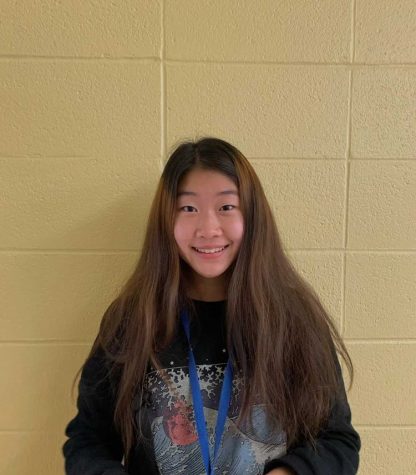Remembering Lost Ones This Holiday Season

December 3, 2021
What comes to your mind when you think of the holiday season? You may imagine a time of family reunions where complaining about your pestering siblings, feasting on turkey, and succumbing to delicious platters of delectables become fond memories. But holidays like Thanksgiving could also hold many implications beyond just good food and laughter. These implications could bring bouts of listless sorrow: staring at an empty seat at the table, swallowing old scars, and putting up facades in front of distant relatives.
Holiday Blues can come from isolation, loneliness, or unrealistic expectations for the holiday. I’ve noticed that, as I’ve grown older, the holidays tend to lose their charm and I see them less through the rose-tinted glasses I wore as a child. All I notice now are the missing seats at the Thanksgiving dining room table and the empty areas under the half-heartedly decorated Christmas tree. I’ve embellished the idea of the holidays in my mind because they were what gave me happiness as a child. Even though the holidays don’t feel the same, the false hope that they could be what they once were gives me the motivation to get through the days leading up to them.
My grandmother, my best friend and only grandparent, passed away last year due to COVID. This past Thanksgiving was the first Thanksgiving that the loss, which I had been running away from, had finally caught up to me and left me breathless for air. Every year, we would have friends and family over and they would gather around to greet my grandmother, who would sit at the head of the dining room table. She was unknowingly the glue that held our traditions together, and with the centerpiece gone, we had crumbled apart. The grief and the emptiness that I’d bottled up for so long finally spilled over, and I felt truly isolated.
To fill the void, I made the mistake of mindlessly scrolling through the bottomless pit of social media. Seeing the smiling families and cornucopias of food on lavish dining tables made me look at my own empty table and only increased the heartache I was feeling. This year, my mom and I had planned to do nothing on Thanksgiving, and I pretended not to care. But seeing these idealized versions of families made me feel like I was missing out on this universal life experience: a fully completed dining table filled with loved ones. Even my Snapchat decided to haunt me with “on this day, two years ago” memories, and it showed a video of a smiling girl. She was similar to me in the way that our facial features aligned together, but she was a complete stranger. She was laughing with her grandmother at a full dining room table. This feeling was so foreign to me now, it felt like I was watching a ghost––the lifeless frame of a girl I once was.
But I realized that those old videos I was watching could have the same effect on other people as they had on me. What we see on social media does not always match up with the realities of the holidays. I talked to a few THS students about how they actually felt during their Thanksgiving dinners, and went beyond just the idealistic facades of enticing heaps of food and videos of family game nights.
For other students who’ve also experienced loss, holidays like Thanksgiving can also trigger some poignant memories and somber realities. Andy Son (‘23) spoke about his grandfather’s passing, and how it has affected him during the holidays: “November 27th, December 1st, and December 5th are the days that I get most sad. It’s sorta like these two weeks are pretty bad because it ranges from his birthday, to death day, to burial.” Son shared about how recently, he has been “thinking of [his] grandfather a lot more especially since it’ll be the one year mark.” Personally, I can definitely relate with what he’s saying. Although I see love in the face of my mom, I can’t help to think of those we’ve lost in the past year. Seeing others during gatherings in these seasons can make us think about all the things we don’t have. As much as it is a time of gratitude and reflecting on abundance, for others, it may be a reminder of what they lack in their lives.
For some students like Gia Shin (‘23), Thanksgiving is “a bittersweet reminder of how fast time passes.” Shin explained: “every year since I was young, my family would go to my dad’s old professor’s house and a few other families would gather. The people who gather at the house change every year—the high school kids I used to play with when I was in elementary school went off to college, then graduated college, and are now adults.” Thinking about how she was now the oldest kid in the house this past Thanksgiving and about to graduate high school soon, it was a very surreal experience that many others are sure to relate to. It could make us dread the holidays as they serve as reminders that we’re just one more year closer to something that we’re all not ready to face yet: the unknown future.
If the holidays are a hard time for you, know that you’re not alone and it’s okay to feel what you’re feeling no matter how much you think you need to put up a good face. We spend so much time carefully crafting an image on social media to the point where we become blind to each other’s faults. Everyone has their pages of blotched ink in the chapters of their books, even if their cover pages might appear polished and pristine. Especially with the global pandemic that’s still occurring, and with the current United States death toll of 777,000, it’s easy to say that many families were heavily affected and are suffering from losses this holiday season. So if you know someone that has recently lost someone, reach out to them. Invite them to a seat at your next Thanksgiving meal or to help decorate the Christmas tree. Empathy is what can still connect us together and it continues to unite us at the forefront of our pains; even in the midst of death, it reminds us that there is still a silver lining of joy.
















































































































































